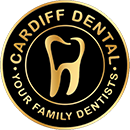How To Recover Faster After Wisdom Teeth Removal
 Wisdom teeth are third molars that usually erupt between ages 16 and 24, though they may appear as late as the early 30s.
Wisdom teeth are third molars that usually erupt between ages 16 and 24, though they may appear as late as the early 30s.
There is rarely enough room in the gum line for the wisdom teeth to fully emerge. These teeth occur in 65% of the general population, and of those teeth about 85% eventually require extraction.
At Cardiff Dental, we are experts in assessing and treating wisdom teeth, from explaining the special care of them at home, to extraction if they become dangerous to your dental health.
Why Do Wisdom Teeth Appear?
Why do we have a third set of molars? After all, they serve little purpose, and usually need to be taken out?
Wisdom teeth are a holdover from times past. Our ancestors needed strong teeth to eat raw meat, roots, and difficult-to-chew items. And because they frequently lost teeth, having extra teeth came in handy – and wisdom teeth tended to come at an age that some teeth were already missing, giving them room.
Today, our diets and dental hygiene habits have improved — but our mouths have not developed as quickly. Fortunately, wisdom teeth removal is easier than ever, and at Cardiff Dental we are your local experts!
What’s the Problem?
When your wisdom teeth erupt, they can run into problems due to a lack of space in your gum line:
- Impaction, or partial emergence
- Infection due to impaction
- Crowding
- Tooth decay or gum disease around the third molars
- Oral pain and discomfort
If you have discomfort in the back of your jaw, a bad smell emerging from the back of your mouth, or notice the eruption of your third molars, schedule an appointment with your Cardiff dentist. Prompt removal of troublesome wisdom teeth is critical to your continued oral and overall health.
Wisdom Teeth Extraction: The Sooner, The Better
It is important for young patients to have x-rays to determine whether or not there are wisdom teeth beneath the gum line. If so, we may recommend an early extraction — especially if the wisdom teeth seem likely to cause problems in the future. The earlier wisdom teeth are extracted, the easier it is for patient and dentist.
During The Procedure
Your doctor or oral surgeon may use one of three types of anaesthesia:
Local anesthesia. One or more injections near the site of each extraction. Although you’ll feel some pressure and movement, you shouldn’t experience pain.
Sedation anesthesia. Through an intravenous line. Sedation anesthesia suppresses your consciousness and you don’t feel any pain.
General anesthesia. This anesthesia makes you lose consciousness, so you don’t feel any pain during the procedure.
During wisdom tooth extraction, your dentist or oral surgeon:
- Makes an incision in the gum, creating flaps to expose the tooth and bone
- Removes any bone that blocks access to the tooth
- Divides the tooth into sections if it’s easier to remove in pieces
- Removes the tooth
- Gives stitches to close the depression left by the extracted tooth
- Presents you with a list of post-extraction behaviours to ensure the health of the extraction area.
Aftercare Tips: Immediately Following Extraction
- The gauze pad placed over the surgical area should be kept in place for a half hour.
- Vigorous mouth rinsing or touching the wound area following surgery should be avoided. This may cause bleeding.
- Take prescribed pain medications as soon as you begin to feel discomfort.
- Restrict your activities the day of surgery and resume normal activity when you feel comfortable.
- Place ice packs on the side of your face where surgery was performed.
- Limit eating, drinking and talking for the first two hours following surgery, and plan to rest for the remainder of the day. To keep from dislodging the blood clot, don’t rinse vigorously or use a straw.
- Avoid rigorous exercise for a few days, as well as smoking or spitting excessively on the day of the surgery
- After the bleeding stops, drink lots of lukewarm or cold fluids to keep hydrated. Eat clear liquids and soft foods. Don’t drink carbonated beverages or eat foods that may leave residue in your socket.
Take care of your wisdom teeth, dental health, and overall health by partnering with us here at Cardiff Dental!
For more information, contact us today on (02) 4954 6888 or book your appointment online.
